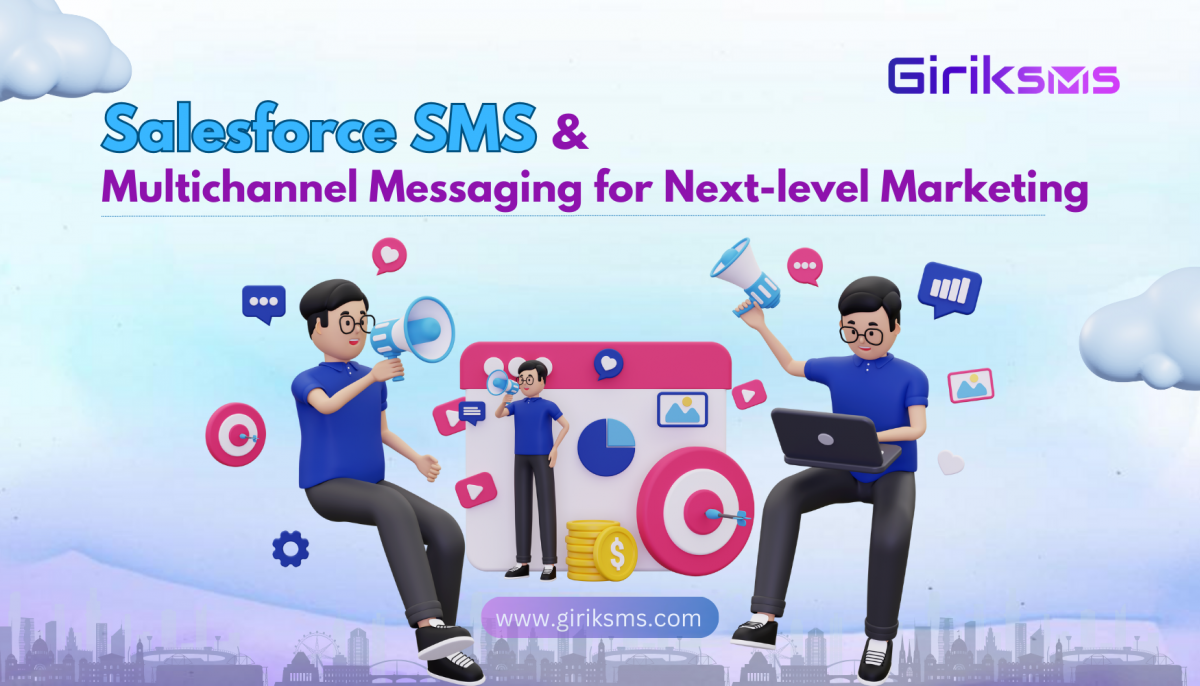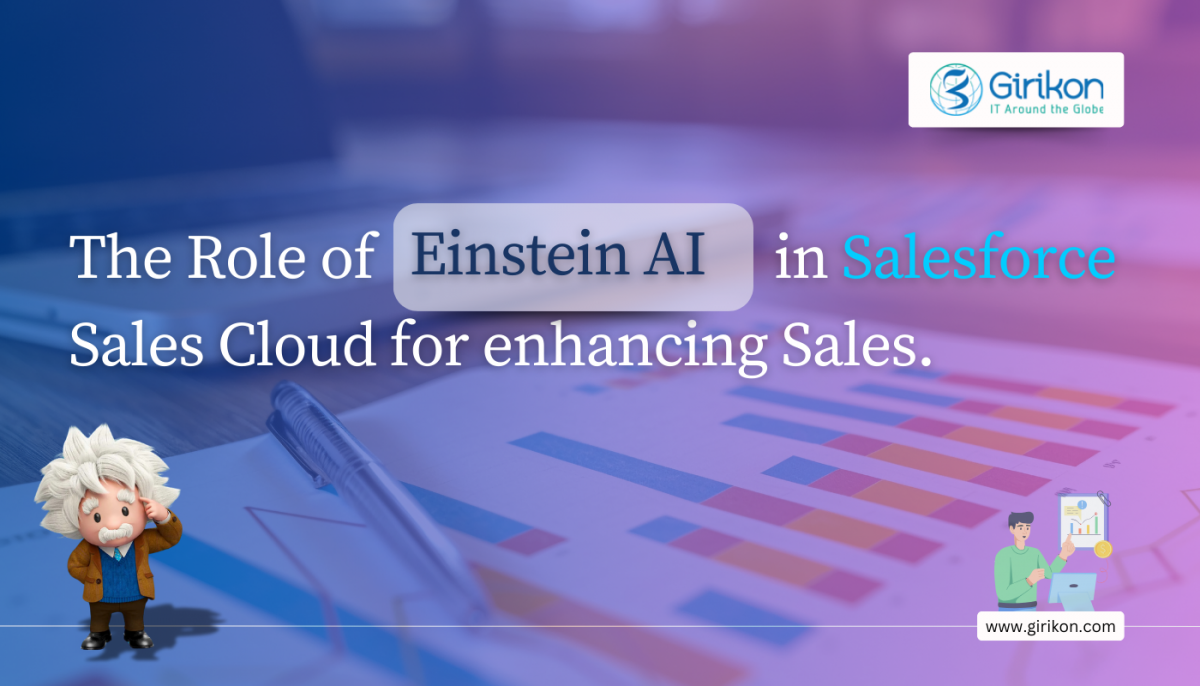To sustain in this cut-throat business landscape, organizations should focus on having a marketing strategy that can help them achieve sustainable growth and a greater ROI. Today, traditional marketing (outbound marketing) techniques that included seminar series, email blasts, cold calling, telemarketing, advertising, and more are becoming less and less effective primarily due to two main reasons. First, users are being inundated with numerous outbound marketing interruptions every day and are thus discovering new ways to block them. Second, the cost of coordination using the internet is now much lower.
Rather than practicing outbound marketing to those who are trying to block and avoid you, it is recommended to practice inbound marketing that would help you be discovered by people looking for your products and services. It would help if you considered implementing inbound marketing tools such as HubSpot to accelerate and make the most of inbound marketing. You should therefore consider partnering with one of the most trusted HubSpot implementation partners. However, it is essential to get in touch with the right partner by taking note of the following things:
Extensive Experience: It is essential to look for agencies with extensive experience in managing several active inbound engagement clients currently and in the past. Inbound marketing takes time to realize its full potential, as every phase includes strategy, implementation, and optimization that hold equal importance. Make sure you engage with an agency that provides comprehensive marketing strategy, implementation, and optimization based on real-time data.
A Proven Methodology for Inbound: It is important to look for an agency with its processes, methodology, and systems. This signals that the agency would be able to operationalize inbound while paving the way for delivering for their clients’ day in and day out
A Proven Methodology for Client Engagement: The difference between a great and modest result depends on engaged and satisfied the client is. Agencies that keep you moving in the right direction while focusing on their resources on the strategies that will provide the best results in the shortest time frame should be hired.
Alignment with Business Goals: The agency you select should completely align with your business goals. Though some agencies might be good at providing inbound marketing stuff such as blogs, whitepapers, emails, webinars, etc., they deny taking any responsibility for business results. It would help if you considered measuring the agency's effectiveness by requesting and tracking their stuff. More importantly, the agency you shortlist should be laser-focused on the lead generation of qualified leads.
Quick Wrap-up:
Finding the right inbound agency or a HubSpot Consultant for you might take some work, and this will require asking the right questions, ensure that the team's methodology aligns with your expectations. They should be crystal clear on the expected results from the inbound engagement. The team you engage should be happy to help you with better clarity about inbound marketing, the processes and work involved, and the expected results. When all these align with your expectation, you are on the right track to your inbound marketing journey.
Maintaining customer relationships has become the cornerstone of every business undertaking. Today, forward-looking organizations leverage robust and cloud-based CRM (Customer Relationship Management) systems like Salesforce to manage their customer relationships while streamlining their business processes. What sets this robust CRM apart from the rest of the pack are the multiple features, functionalities, components, and the new user interface, i.e., Salesforce Lightning that can help you build experiences to make users more productive.
The new Salesforce Lightning experience developed by Salesforce has a modern interface that is built on the Salesforce mobile technology. The new interface is more responsive across devices, promises faster navigation, and is more intuitive than Salesforce classic. Apart from this, the new back-end design system that offers a streamlined developer experience along with a growing library of innovative features makes the upgrade to Salesforce Lightning a must-have. However, it is important to be conscious that migration is not without hitches and can be tricky. It’s prudent to connect with one of the best Salesforce partners to enjoy seamless migration.
Listed below are some of the challenges that usually creep up during migration to the Lightning platform:
Complications in Customization: Though Salesforce is known for its adaptability, making a shift from a customized Salesforce Classic platform to the Lightning platform can be challenging. This can be overcome by documenting all the customizations that have been done in classic completely. Following this, an appropriate solution in Lightning should be figured out and set them up for hassle-free migration.
Declining Performance: Performance issues usually crop up post-migration. For instance, longer page loading time, etc., may lead to navigation difficulties, impacting user experience. Therefore, it is important to assess Salesforce org health and find areas that are causing barriers to the workflow. It is also essential to evaluate the quality of data before migration.
Overload of Functions: Salesforce Lightning offers a wide array of customizable features. However, choosing the right and required function can be difficult with such an assortment of choices available as companies might go out of the way with the customization tool. This causes more disruption than enhancement. It is important to browse through every available customization and choose the necessary ones to improve processes and keep them running smoothly to overcome this challenge.
Wrong Timing: It isn’t a prudent decision to rush into adopting Salesforce Lightning just because; it is a new and improved user interface. Migration should only be done when the time is right, as starting the migration at the wrong time leads to backlogs occurring as projects get delayed.
Delays in Implementation: Once the migration is complete, few users might find it challenging to use the new system properly. To get everyone on board, it is important to ensure phase-wise rollout with only a few users using the platform during the cushioning period.
Lack of Readiness from the Team: It is important to check your team’s readiness before migrating to the new platform. It is crucial to provide them with proper training depending on the function they would be using while using the Lightning interface.
Quick Wrap-up:
The journey of transitioning from Salesforce classic to the innovative Lightning platform might not be easy. However, this should not discourage you from enjoying all the benefits that Salesforce Lightning has to offer. With proper planning, the transition can be ensured more seamlessly. To ensure smoother and successful migration from Classic to Lightning, you must consider partnering with a reliable Salesforce consultant.
To achieve and sustain business growth, organizations should have a solid marketing plan that can help organizations get an edge over their competitors, create value for their customers and create brand awareness. This is where inbound marketing strategy – a way of reaching out to customers with relevant content comes into the picture. The content can be used to resolves customer queries while providing them with valuable information. Using marketing automation tools like HubSpot can help organizations in their inbound marketing journey. So, it's necessary to seek HubSpot support to make the most of this robust tool.
Companies, especially tech companies, benefit significantly by adapting inbounding marketing tactics as they have an audience beyond their geographical location. As a result, inbound marketing proves to be a key approach for raising awareness for your company. As one of the most result-oriented marketing methods, inbound marketing helps tech companies to increase their sales and widen their brand presence. Through relevant content, audience engagement can be driven, which ultimately results in improved business growth. However, organizations need to follow some best practices to make the most of inbound marketing.
Listed below are some proven inbound marketing strategies for tech companies:
Provide Guidance through Ebooks and how-to Guides: A vast number of users stroll over the web in search of tech solutions. How-to guides and Ebooks offer a perfect solution to benefit from. Leading tech companies strive to provide resolution to a wide array of customer issues by seeking customer details on a form. These not just increase website visits but also portray you as an authority on your domain. The essence of ebooks lies in them being downloadable, which in turn creates a sense of ownership. Besides increasing engagement with customers, these materials can help in remarketing.
Email Marketing: One of the highest revenue-generating inbound marketing tactics is Email marketing. This is because; organizations need to reach out only to potential customers who have shared their contact details in exchange for valuable information like ebooks etc. Through email marketing, organizations can generate awareness for their content. Tech companies can use relevant emails to build a credible relationship with their customers.
Leveraging Social Media: Every organization must have an active social media presence to remain competitive, and this could be managed by regularly posting relevant and informative content on social channels. With an active social media presence, organizations can gain authority over their domain and reach a wider audience by creating brand awareness. Like a website, the social media account of an organization represents its brand image. The platform can thus be leveraged to promote content present on the website, such as case studies, blogs, etc., thereby increasing website traffic.
Better User Experience: Websites should be developed and customized to ensure a smooth user experience as a website is the digital identity of any business. In fact, most content marketing happens on the website, and customers come to engage with the brand.
Quick Wrap-up:
Customers' expectation has evolved significantly over the years, and it isn't easy to engage with them using out-dated outbound marketing strategy. Customers now trust brands that offer them valuable information, which is why businesses, including tech companies, are required to adopt inbound marketing strategies and better connect with customers with a steady flow of relevant content. So, if you are looking to get started with inbound marketing, make sure to get in touch with one of the reputed HubSpot implementation partners.
In today’s digital era, the business landscape has undergone a significant transformation. Today, customers have become more informed and expect personalized services from sales reps. Since sales play an important role in customer experience, AI prediction builders and other recommender systems appreciate investing time in exploring new products. AI tools can be leveraged by the sales team for making intelligent business decisions and tailor their strategies as per customer behavior and preferences while providing them with an enriching buying experience. It’s better to partner with a certified Salesforce consultant to make the most of these tools.
Mentioned below are some tools that can be leveraged to make the most of AI in Salesforce:
Effective Sales Strategies: Effective sales strategies should include reaching out to the prospects at the right time. This can be ensured by drawing meaningful insights regarding customer emotions from the customer data that is primarily available in an unstructured form such as emails, social media posts, sales meetings, and more. These insights, when combined, can be used to resolve issues regarding revenue, territory, competitors, and more. Tools such as Einstein Account insights and Einstein opportunity insights can be leveraged here.
Improved Lead Prioritization: Understanding need hierarchy and customer behavior are essential for accurate prediction of leads and modification of lead generation strategies. Salesforce algorithms work similarly, thereby allowing lead scoring models that are based on the following:
Behavior Analysis: It helps in analyzing which customers’ are inclined towards the website pages. Apart from this, it also helps to know which pages are performing better.
Company Details: Every detail beginning from recent mergers, leads, revenue, and other factors play an essential role.
Engagement: Engagement is the attraction shown by your customers towards a product and at a specific frequency. For instance, a visitor subscribing to a newsletter shows their engagement with a product or service.
Better Insights: While Salesforce shows excellent efficiency in collecting structured data, it fails to efficiently collect unstructured data from emails, social media data, sales meetings, and calendar events. For gathering insights regarding customer behavior and preferences, activity data is significant. However, doing it manually can be time-consuming and would require many efforts. In fact, a considerable portion of time is spent researching, entering data, generating quotes with very little time spent on core selling. Salesforce engages Einstein Activity Capture to sync all the activities while managing time-consuming activities, ensuring higher productivity and sales.
Accurate Prediction: It becomes easy for the sales team to calculate the revenue that is expected to be generated by making use of AI tools. The calculations are done basis multiple factors such as customer’s shopping history, sales performance, and records. Einstein forecasting provides the sales team with real-time insights along with graphical representation.
Final Words:
To sum up, we can say that AI is no longer a future technology anticipated to bring revolutionary changes in every sector. It is already here and is benefitting every domain, including the e-commerce sector, where most customer interaction will be done through AI. With the provision of practical algorithms, innovative selling solutions, and all-inclusive analytics, AI can improve the decision-making of sales reps. It’s better to get in touch with one of the most experienced Salesforce consulting partners to know more about Salesforce AI tools and their benefits.
It is essential to create a seamless customer experience across multiple channels and platforms to ensure customer satisfaction. This not just leads to better collaboration between different teams but also aids in business growth. All this requires having in place a robust solution, and Salesforce Customer 360 offers proper Salesforce support.
What is Salesforce Customer 360?
Salesforce customer 360 is a platform designed to help organizations better connect with their customers by promoting consistent internal operations. The platform supports internal collaboration by bringing sales, marketing, analytics, commerce, service, and IT. By leveraging this data, the platform creates unique customer IDs that can be used across all Salesforce and other applications. With this, a seamless customer experience can be created as all the teams in an organization will have access to this data.
Listed below are some reasons why Salesforce customer 360 can prove to be a game-changer for forward-looking organizations:
Personalized Customer Experience: Small businesses that manage their data on spreadsheets or sticky notes fail to deliver personalized experiences to their customers as it is difficult to understand customer contexts. Businesses should provide their customers with personalized experiences to maintain lasting customer relationships to remain competitive. Salesforce customer 360 enables teams to craft reliable data on genuine customers and their needs. This enables organizations to augment their customer service and solve customer issues.
Better Customer Experience: Figuring out genuine business customers and where they are isn’t easy. Customers, too, are apprehensive of sharing their data again and again. Salesforce customer 360 simplifies the customer satisfaction index when they connect with a business entity. Businesses leveraging such a system can benefit their entire workforce from marketing, sales, and service as they can store data that’s accessible to all. With this, customers start trusting the business and their efforts towards customer success.
Business Forecasting: Businesses can achieve sustainable growth when they meet or exceed the expectations of customers. However, this is a big challenge for small businesses. Businesses must consider leveraging Salesforce 360 to help them adapt to various apps related to sales, marketing, support, and service while fulfilling customer expectations and business growth. In fact, this platform is designed to manage a small team size of 1-20 people that can avail both sales and service functions in a single app.
Better Business Decisions: For making intelligent decisions, it’s vital to have access to well-researched facts, figures, and data points. By having a rich customer database demand forecast, sales forecast expected revenue, and customer market projection, better decision making becomes possible as, in the presence of factual data, better planning can be done. With well-articulated figures in place, both long-term decisions and planning for short-term ventures can be ensured. By having in place a robust solution like Salesforce 360, a foundation for consistent and trustworthy and business intelligence can be laid as it offers features such as Salesforce scripting, reporting, content management system, and more.
Final words:
In a nutshell, it can be inferred that the power of a robust solution like Salesforce 360 can be leveraged to improve the internal operations of a company and significantly improve customer experiences. However, investing in a powerful solution like Salesforce 360 requires time, thought, and advice from a certified and experienced Salesforce consultant.
In today’s technology-driven era, the pace of innovation has never been faster. The digital disruption has significantly impacted the way businesses conduct themselves. In fact, businesses across different industry verticals have benefited from the wave of digital transformation. One such technology solution that has helped companies to transform their customer experiences while improving business process efficiency is the Salesforce CRM. As a cloud-based platform, Salesforce, with its wide array of features and functionalities, allow organizations to resolve their unique business challenges while remaining competitive.
In the manufacturing industry, Salesforce is the enabler that keeps the machinery moving. The Salesforce manufacturing cloud by Salesforce can be leveraged by manufacturing companies with forecast accuracy, collaboration, visibility, and streamlining processes. The cloud solution addresses the pain points of the traditional system by automating processes, which helps minimize cost and improve efficiencies.
The cloud platform offers features such as marketing automation, sales management, partner relationship management, and customer service. This powerful cloud-based offering assists companies in handling client accounts, conduct, track sales prospects, noticing marketing outreach, and offering after-sales service & support. To implement the Salesforce manufacturing cloud, organizations should consider getting in touch with one of the best Salesforce consulting partners.
Listed below are some of the compelling benefits offered by this robust platform:
Increased Sales: The ultimate goal of every manufacturer is to augment their sales and revenue by increasing their customer reach and engagement. Salesforce CRM collates all the crucial information, which can then be analysed to gain meaningful insights. The relevant information gathered by the robust CRM can be analyzed to draw actionable insights that can be used to take necessary steps for customer retention.
Improved planning: The CRM provides users with volumes of data that facilitate data analysis and planning. With the availability of clean and precise data, strategic planning can be done. Mundane tasks can be automated, and work processes can be streamlined, which improves overall productivity.
Enhanced Customer Satisfaction: With a robust cloud solution like the Salesforce manufacturing cloud, manufacturing companies can ensure better collaboration among all the departments. The empowering cloud solution can help companies deal with service and warranty-related issues. This will empower customers to be valued, which will pave the way for customer loyalty and satisfaction.
Expansion of Business: This cloud-powered CRM helps businesses expand beyond their local boundaries and customer base. Salesforce CRM enables the process of expansion by prequalifying prospects, focusing on potential clients, and ensuring better communication. Moreover, employees become more sharp and attentive with a Salesforce CRM by their side, which leads to enhanced business productivity.
Final Words:
Implementing Salesforce Manufacturing cloud within your business ecosystem can create efficiencies up and down the organization. While several manufacturers might be cautious of transitioning to new technology, the business benefits of deploying this technology are endless. Companies adopting Salesforce manufacturing cloud can help them stay competitive in a cut-throat business landscape. It is prudent to get in touch with a certified Salesforce consultant to know more about the Salesforce manufacturing cloud.
As a cloud-based platform, Salesforce continues to rein the CRM space as it occupies a market share of around 20 percent. It is indeed the most popular and widely adopted CRM system due to the vast array of valuable features and functionalities offered by the platform. What makes it unique and one of the most preferred platforms is the release of new products and features year after year.
With several new releases and acquisitions back and forth, Salesforce has come a long way. With such an evolution, users of Salesforce technology should learn to stay ahead of the curve. Instead, customers need to understand how they can use technology to increase business ROI, which significantly impacts the bottom line.
Listed below are some great features that can help organizations optimize their Salesforce implementation for mitigating costs incurred due to customer and employee churn. It is always a good option to seek support from a reliable Salesforce consultant to know more about these features:
Lightning Page Performance: This powerful feature allows users to deal with inconsistent lightning pages that aren’t optimized while working in a Salesforce org. The Lightning page performance is built natively into the Lightning App Builder responsible for doing all the analysis. This feature provides analysis about the performance of the pages on desktop/ mobile while providing tips to enhance performance and user experience. By benefitting from the Lightning Page Performance and optimizing the placement of the lightning component, end users can accomplish their duties much quickly and efficiently while dealing with the urge of distractions while opening multiple pages to fulfill their daily tasks.
In-App Guidance: This feature assists employees with reminders, tips, and gradual walk-throughs to help them navigate the system appropriately. This feature can be configured to display a floating message or a prompt message in the utility bar. To measure the effectiveness of your implementation, data about the interaction of employees about guidance messages is recorded. This feature provides resources to users even before they recognize the need, thereby increasing the company’s ROI. This not just saves time but also improves efficiency. With supporting resources, and efficient workflows, employee morale is increased, and productivity is optimized.
Salesforce Survey: For an organization to improve their ROI, they need to understand where the opportunities for enhancement are. Shortcomings usually exist in lengthy sales processes, product-related issues, slow response time, and more. However, identifying the bottom of the matter is necessary for implementing change. To understand customer experience regarding their products and services, organizations can directly gather customer feedback by using Salesforce surveys. This feature is endowed with a wide array of functionalities and the ability to automate the sending of the survey, customize email templates, and more. By gathering and analyzing survey results, organizations can better serve their customers.
Social Studio: This feature is leveraged by organizations to connect with prospects and customers on social channels such as Facebook, Linked In, Twitter, and more. Eventually, this feature connects the sales, marketing, and service teams with their customers, enabling employees to develop meaningful relationships with customers and communicate with them on a common platform used both inside and outside of the workplace.
Social Studio allows organizations to identify what prospects/ customers are speaking about the company, respond and track prospects as leads, and much more.
With Social Studio, data-driven insights can be gained, which provides a deeper picture into how your customers engage with your social strategy, which can lead to enhanced lead generation and sales opportunities with the likelihood of maximum closure.
Final Words:
Businesses are seeking ways to save time and money by removing operational bottlenecks. The cost incurred as a result of employee and customer churn as a result of poor customer experiences can be alleviated by optimizing Salesforce and making the most of all the great features. To know more about these robust features, make sure you get in touch with one of the best Salesforce partners.

 +1-480-382-1320
+1-480-382-1320 +61-1300-332-888
+61-1300-332-888 +91 9811400594
+91 9811400594


















